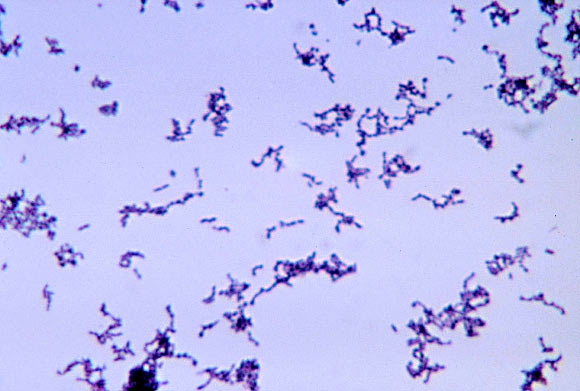A new study published in the Journal of Drug Design, Development and Therapy demonstrates the potential of Zolav® as a new treatment for acne vulgaris.

Propionibacterium acnes, a bacterium common in acne pustules. Image credit: Bobby Strong / CDC.
Acne is a prominent skin condition affecting more than 80 percent of teenagers and young adults and approximately 650 million people globally.
Systemic isotretinoin, a vitamin A derivative, remains the most efficacious treatment for severe acne as well as many cases of more moderate disease.
However, it has a number of significant adverse side effects, of which its ability to lead to birth defects in pregnant women is the most serious – a reason for the development of novel and low-risk treatment options for acne.
“Zolav® has shown to have low toxicity to cells and antioxidant properties,” said study co-author Dr. Ramiz Boulos, from Flinders University and Australian company Boulos & Cooper Pharmaceuticals Pty Ltd.
Zolav® not only significantly reduces the acne infection, but also reduces redness at the same time.
“Susceptibility testing of Zolav® against Propionibacterium acnes showed a minimum inhibitory concentration of 2 µg/mL against three strains with no cytotoxicity and no mutagenicity observed at the highest concentrations tested, 30 µM and 1,500 µg/plate, respectively,” said Dr. Boulos and his colleague, Alexa Dinant of AXD Pty Ltd.
“These are promising results and provide persons affected by acne with a new treatment option that is low risk.”
According to the team, the new treatment is only a few years from reaching the market.
_____
Dinant A. & Boulos R.A. 2016. Zolav®: a new antibiotic for the treatment of acne. Drug Design, Development and Therapy, vol. 10, pp. 1235-1242; doi: 10.2147/DDDT.S106462







